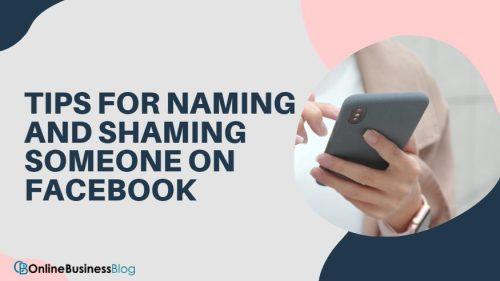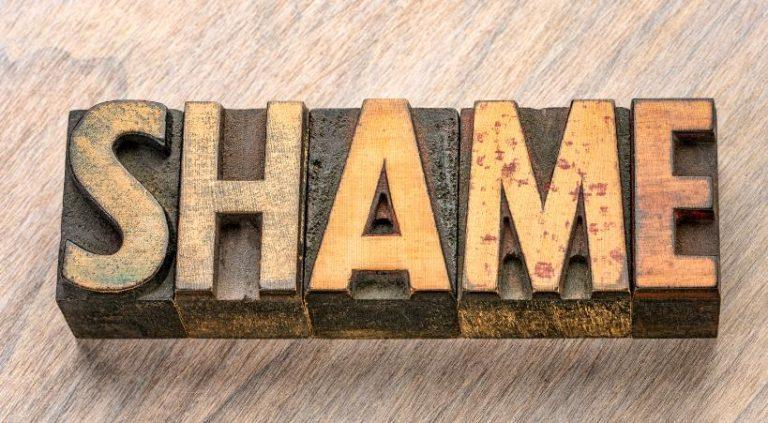Post Contents
The term “naming and shaming” refers to the act of publicly identifying someone who has committed a crime, or acts in a way that violates their social responsibility. Naming and shaming often take the form of publishing compromising details about the person, including personal information such as age, address, or occupation.
What is shaming someone on Facebook?
Shaming someone on Facebook is a way to embarrass and make the person feel bad about themselves. There are many ways to name and shame someone on Facebook, but some of the most common methods are as follows:
1. Posting screenshots of embarrassing conversations or posts that the user has made.
2. Making public announcements about the person’s wrongdoings or embarrassing behaviour.
3. Posting personal letters that have been sent to the user by other people.
4. Photoshopping or creating fake images of the user with embarrassing headlines or captions attached.
How to name and shame someone on facebook?
If you’re feeling frustrated with someone, there’s a good chance that name-calling is at the top of your to-do list.

But before you go naming and shaming that person on Facebook, there are a few things you should know.
1. Naming and shaming someone on Facebook can be really harmful Naming and shaming someone on Facebook can have a really negative impact on their feelings, both now and in the future. This isn’t just embarrassing – it can also cause them to feel like they’re not good enough or that they don’t belong in the community.
2. It’s important to think about what you’re saying before you post Before you go posting about how terrible this person is, it’s important to take a step back and think about what you’re actually saying. Make sure that your accusations are backed up by evidence, and be aware of the potential consequences of naming and shaming someone online.
3. Don’t post anything that you wouldn’t want your friends to see If you’re feeling frustrated with someone, it’s probably not a good idea to post anything that you wouldn’t want your friends to see. This includes anything that could potentially be embarrassing or damaging to the person you’re name-calling.
Remember: Name-calling isn’t the only way to express your anger Naming and shaming someone on Facebook is a popular way to deal with anger, but it’s not the only way. There are plenty of other ways to communicate with that person that won’t have such a negative impact. Try talking to them in person or sending them a message through social media instead.
Examples of naming and shaming
Naming and shaming someone on Facebook can be a powerful way to hold them accountable and motivate change.
Here are some examples of how to name and shame someone:
- Post a public message accusing the person of wrongdoing, asking them to explain themselves or take action.
- Create a group called “Shameful People” and add the person’s name to the list. Anyone who comments on or shares the group post will be helping to publicly shame that person.
- Share the person’s embarrassing photo or video on your personal Facebook page with the caption “This is what happens when you ____.”
- Send an email to their work, school, or another social network account with the same message.
Tips for naming and shaming someone on Facebook

Here are four tips for naming and shaming someone on Facebook:
1. Choose your target wisely. It’s important to choose your target carefully, as name-calling can have a negative effect on the person you’re shaming. If you’re going after someone in a public forum, make sure that the information you share is true and hasn’t been publicly shared before.
2. Be careful about what you post. When naming and shaming someone, it’s important to be respectful and considerate of their feelings. Make sure that your posts are factual and don’t contain personal attacks or insults.
3. Use discretion when posting information about the person you’re naming and shaming. If the person has young children or is otherwise vulnerable, it may not be appropriate to publicly shame them.
4. Be prepared for backlash. Naming and shaming someone online can often lead to harsh criticism from that person’s friends and followers. Be prepared for this type of reaction, and keep in mind that it’s okay to delete or edit your posts if they become too controversial or hurtful.
FAQs
Can You Be Sued for Something You Post on Facebook?
As with any online activity, there is always the potential for legal liability when sharing information on social media. In particular, if you share someone’s personal information – such as their address or phone number – without their consent, you may be susceptible to a lawsuit. If you’re concerned about this potential liability, it’s important to understand your legal rights and responsibilities when posting information online.
First and foremost, you have the right to free speech. This means that you are allowed to express your opinions publicly without fear of reprisal. However, this doesn’t give you carte blanche to post anything that could harm another person’s reputation or privacy. If you believe that someone has violated their rights by posting personal information online, you can take various steps to protect yourself.
Make sure that the information that you’re sharing is relevant and necessary for the purpose of your post. If it’s not, remove it from your post immediately. Additionally, be sure to use proper grammar and etiquette when posting information online. This will help avoid any potential legal issues down the road.
Finally, always be aware of your surroundings and keep an eye out for possible threats or harassment directed towards the person whose information you’ve shared. If necessary, call police assistance in order to protect yourself and the individual targeted by your posts
Is name and shame legal on Facebook?
Naming and shaming on Facebook is not only legal but can also be an effective way to get someone’s attention.
Conclusion
In this article, we will be discussing how to name and shame someone on Facebook. Naming and shaming someone is a powerful tool that can be used for positive or negative outcomes. It’s important to carefully consider the reasons you are naming and shaming someone before taking any action, as well as the potential consequences of your actions.


